
 Published on and written by Cyril Jarnias
Published on and written by Cyril Jarnias
Thailand, with its pristine sandy beaches, rich culture, and dynamic economy, is attracting an increasing number of real estate investors from around the world. Whether you’re looking for a dream vacation home or a lucrative investment opportunity, the Thai real estate market offers considerable potential. In this article, we will explore in detail the essential aspects of real estate investment in Thailand, from the reasons to invest and attractive rental yields, to the best investment areas and available property types.
Discover our articles on real estate investment in Thailand:


Thailand, with its pristine sandy beaches, rich culture, and affordable cost of living, attracts numerous foreign investors eager to purchase [...]


In Thailand, senior living residences are experiencing phenomenal growth, reflecting a global trend toward housing solutions tailored to the specific [...]


Thailand, an iconic Southeast Asian nation, is currently experiencing a wave of urban development projects that promise to radically transform [...]


In a country where traditions coexist with vibrant modern development, it’s crucial to understand the role that notaries in Thailand [...]
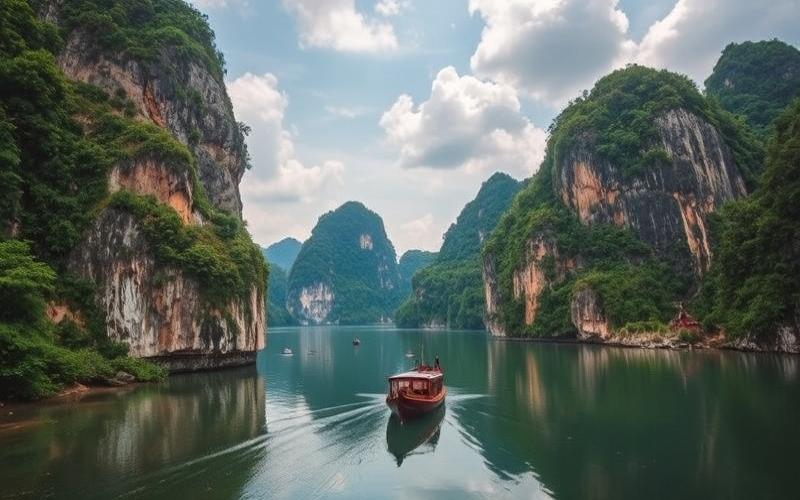

The Impact of the War in Ukraine on Thai Real Estate Russia’s invasion of Ukraine has upended the global geopolitical [...]
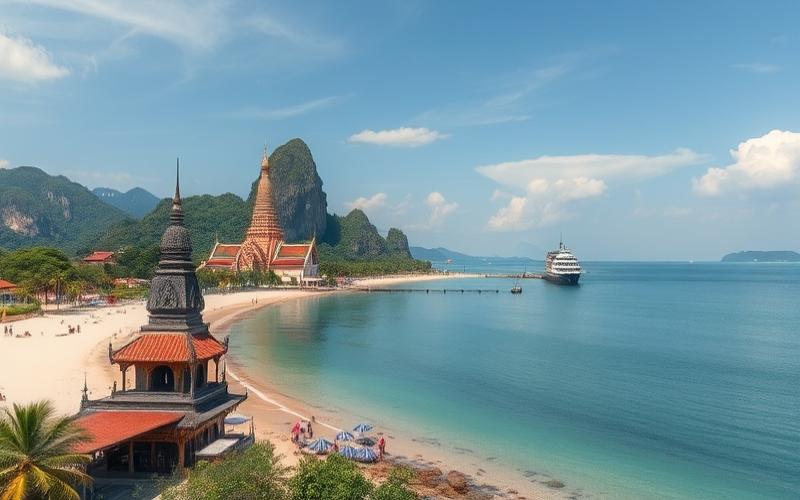

Choosing a Location for Real Estate Investment Choosing a location for real estate investment is a crucial decision that can [...]
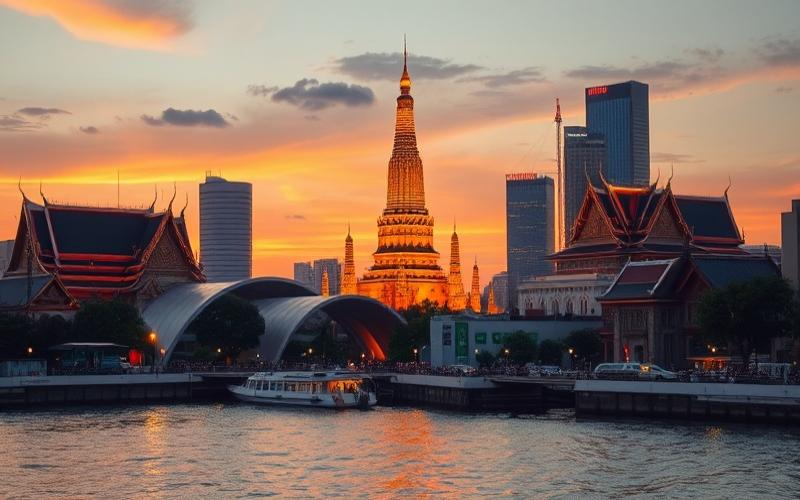

Real Estate Investment in Thailand: Crowdfunding as a Solution In a world where real estate investment remains an attractive way [...]
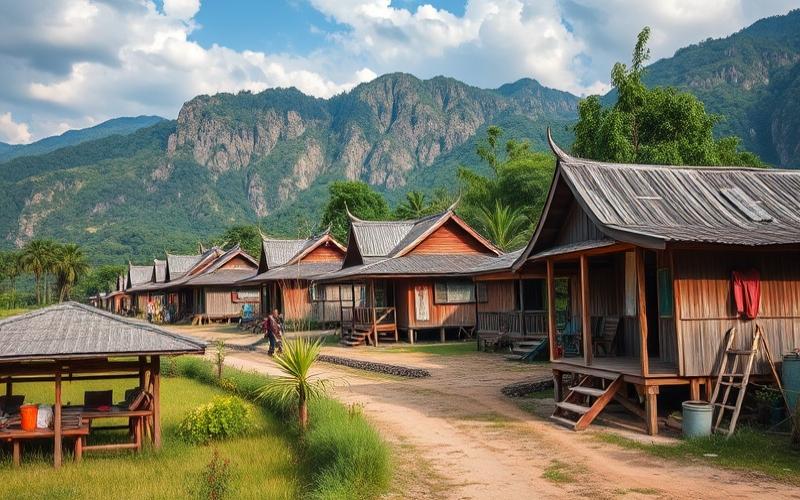

In Thailand, picturesque villages are transforming into genuine creative hubs, attracting both art enthusiasts and investors seeking atypical returns. These [...]
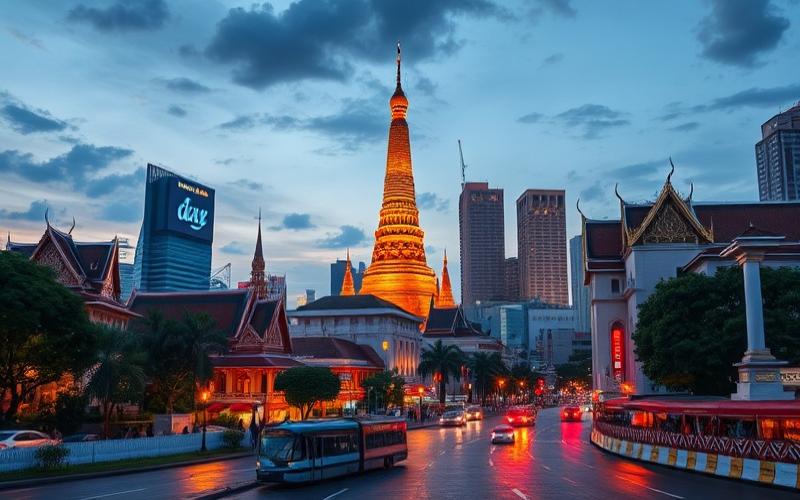

In an ever-evolving real estate market, Thailand is witnessing the emergence of a new player that’s disrupting traditional practices: chatbots. [...]


In a context where rapid urbanization and rising real estate prices threaten housing accessibility, micro-apartments in Thailand are emerging as [...]


Thailand’s appeal, with its idyllic beaches and vibrant cultures, has long captivated real estate investors worldwide, but behind the glossy [...]


In the heart of Southeast Asia, Thailand stands out for its booming luxury real estate market, attracting an increasing number [...]


Diving into Thailand’s Real Estate Market The emergence of auction platforms is redefining how real estate transactions occur. As growing [...]
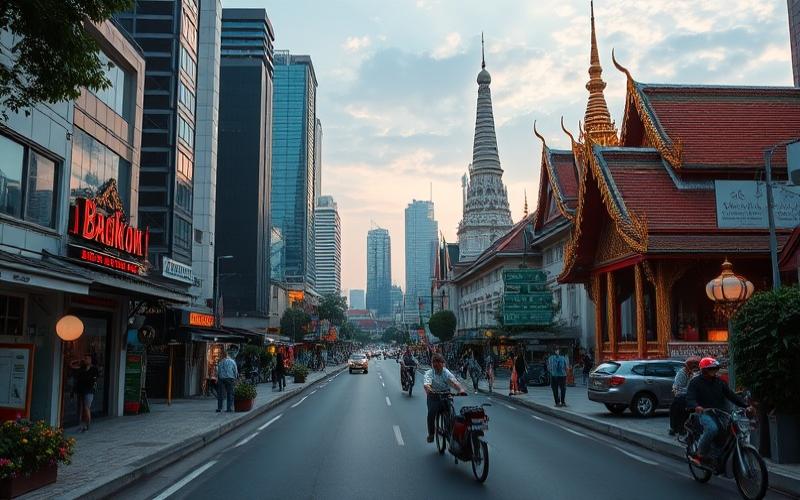

In an ever-evolving global economic context, real estate in Thailand offers attractive investment opportunities, particularly through the possibility of using [...]


Immersed in an exotic setting blending ancient traditions with modern dynamism, many French citizens have chosen to relocate to Thailand, [...]


Real Estate Investment in Thailand: Airbnb vs Long-Term Rental In Thailand’s dynamic economic landscape, the choice between Airbnb and long-term [...]


Exploring the World of Luxury Real Estate in Thailand Exploring the world of luxury real estate in Thailand means embarking [...]


With the rise of remote work and an increasingly connected world, Thailand is emerging as a favored destination for expatriates [...]


In a world where the quest for authenticity is gaining importance, investing in Thailand’s authentic villages represents an exceptionally rich [...]


Green Real Estate in Thailand: A Commitment to a Sustainable Future Amid growing climate change challenges, Thailand is positioning itself [...]


Amid economic and tourism growth, Thailand is attracting increasing numbers of international investors intrigued by the immense potential of its [...]


Investing in Thailand: Mandatory Real Estate Insurance Thailand, with its breathtaking landscapes and booming real estate market, is attracting more [...]


The Thai real estate market is currently experiencing renewed interest from international investors. Despite global economic challenges, the Land of [...]


Thailand, with its white sand beaches, turquoise waters, and relaxed lifestyle, attracts many foreign investors looking to acquire seaside property. [...]
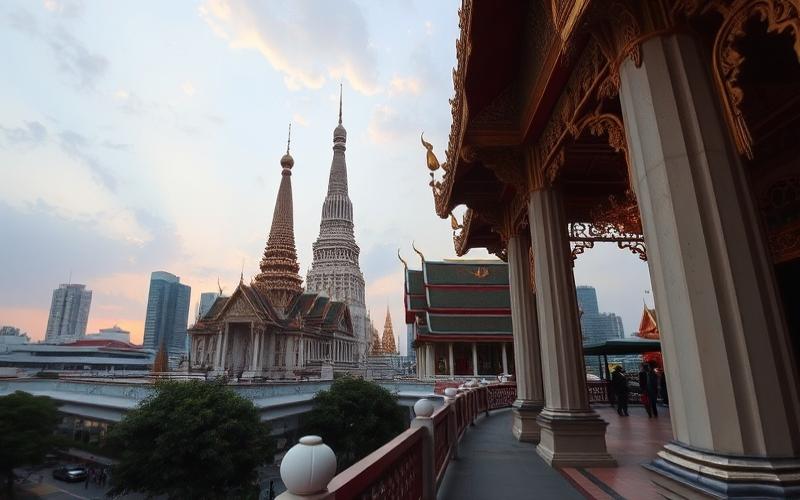

Thailand is attracting an increasing number of foreign real estate investors thanks to its dynamic economy, pleasant living environment, and [...]


Thailand, with its paradise beaches, rich culture, and affordable cost of living, attracts many foreign investors eager to purchase real [...]


The Rise of Digital Nomads in Thailand The rise of digital nomads in Thailand has transformed this Southeast Asian country [...]


Thailand, with its dream beaches, rich culture, and affordable cost of living, attracts many foreign investors looking to purchase real [...]


Thailand, with its paradise beaches, rich culture, and legendary hospitality, attracts millions of visitors from around the world each year. [...]


Thailand, with its pristine sandy beaches, fascinating culture, and exquisite cuisine, attracts millions of tourists from around the world each [...]
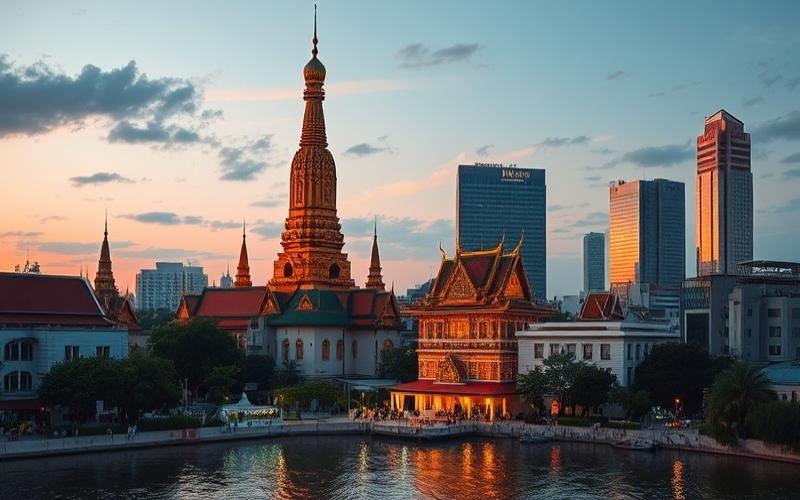

Thailand: A Popular Destination for Expatriates Thailand, with its enchanting landscapes and vibrant culture, attracts thousands of foreigners each year [...]
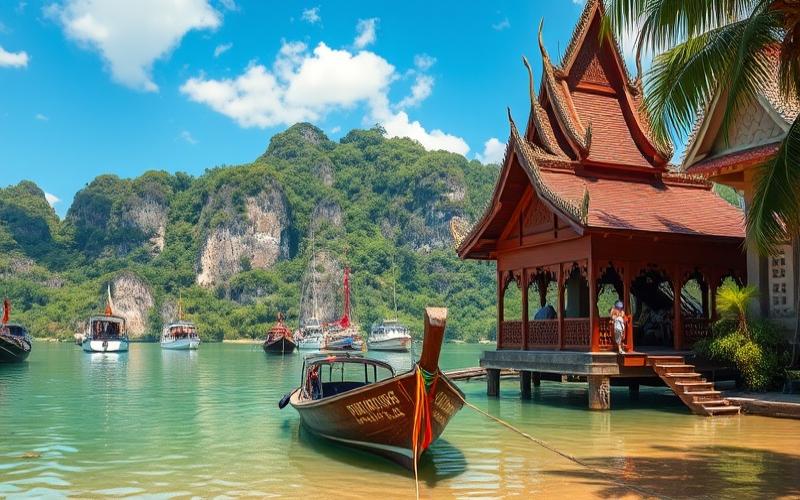

Thailand, with its pristine beaches, rich culture, and affordable cost of living, is attracting more and more foreign investors seeking [...]
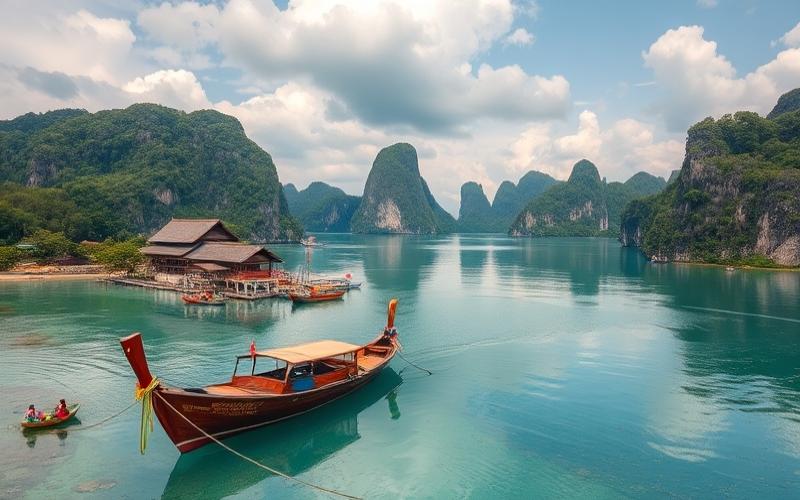

Thailand, with its pristine sandy beaches, rich culture, and affordable cost of living, is increasingly attracting foreign real estate investors. [...]


Purchasing real estate in Thailand can be an excellent investment opportunity for foreigners. However, many inexperienced buyers make mistakes that [...]
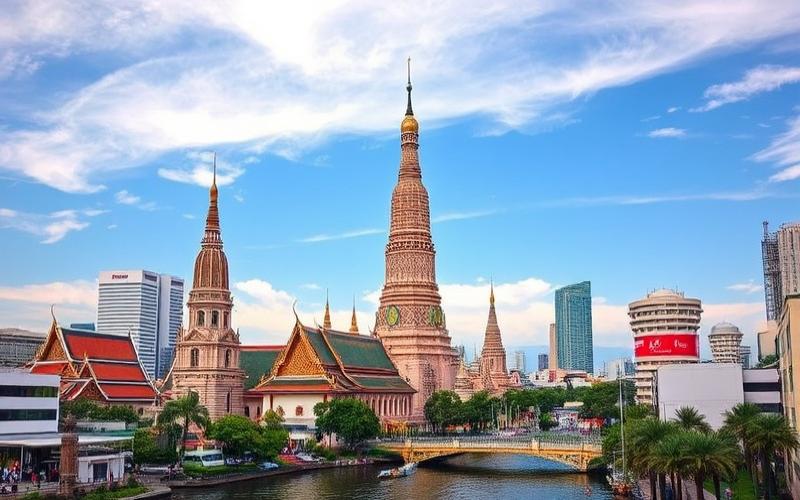

Thailand’s luxury real estate market continues to attract numerous affluent investors from around the world. With its pristine sandy beaches, [...]
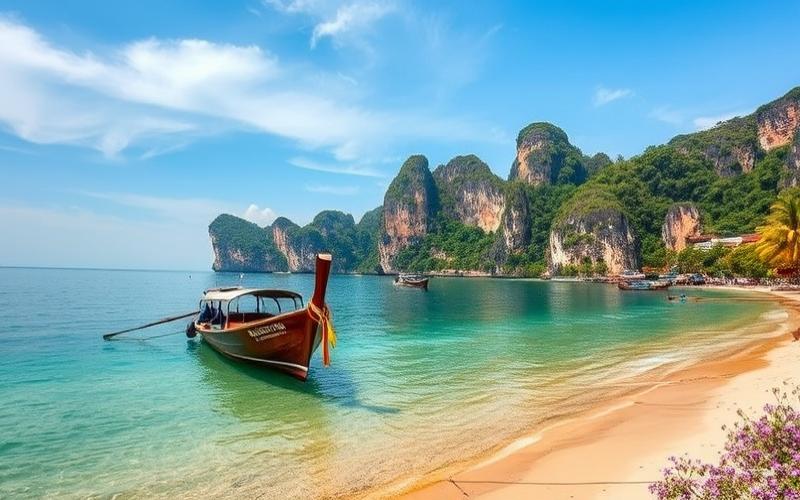

Thailand has become a top destination for international real estate investors, drawn by its dream beaches, rich culture, and affordable [...]
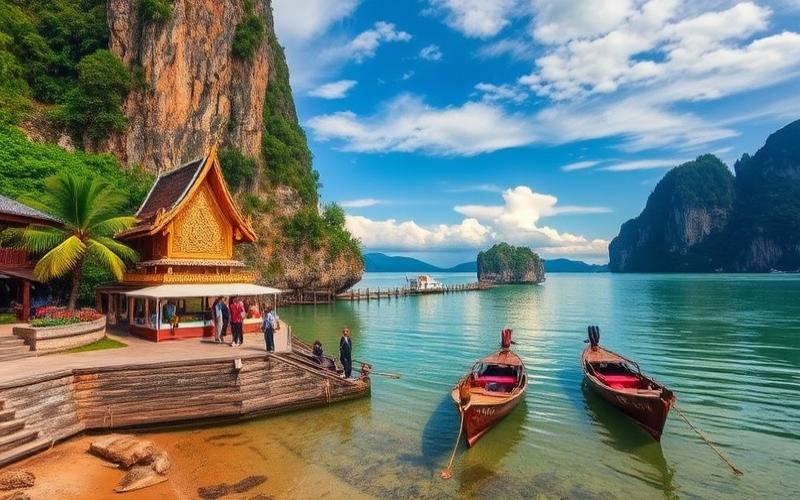

Thailand attracts many foreign real estate investors drawn to its paradise beaches, rich culture, and affordable cost of living. Whether [...]


Thailand’s commercial real estate offers particularly attractive investment opportunities for investors seeking appealing returns in a growing market. With a [...]


Thailand, with its pristine sandy beaches, rich culture, and affordable cost of living, is increasingly attracting foreign investors to its [...]


Thailand attracts numerous foreign real estate investors with its pleasant living environment, paradise beaches, and affordable cost of living. However, [...]


Exploring Thailand, with its pristine beaches, majestic temples, and succulent cuisine, is an unforgettable adventure, and recent travels have been [...]


Thailand: A Prime Destination for Retired Expats As retirees consider spending their golden years abroad, Thailand stands out as one [...]


Thailand, with its pristine sandy beaches, rich culture, and exquisite cuisine, attracts millions of tourists from around the world each [...]


In a world where investment diversification becomes essential, investing in the booming country of Thailand through a Real Estate Civil [...]
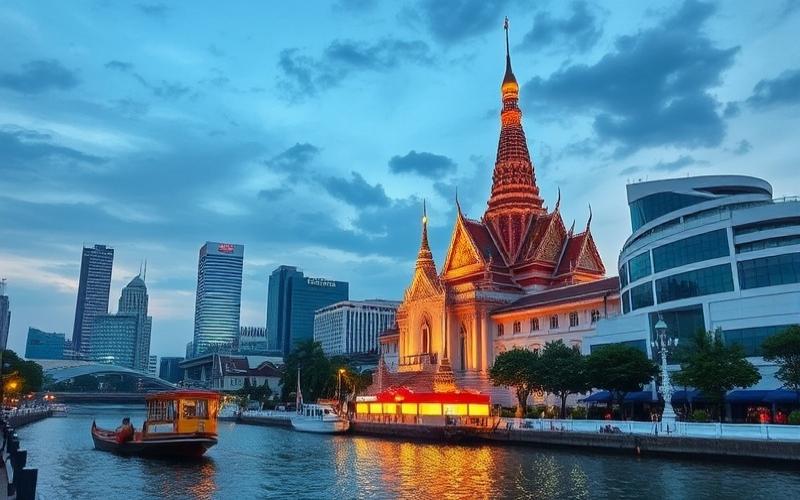

At the heart of Thailand, a country experiencing rapid economic and cultural growth, an innovative real estate phenomenon is gaining [...]


Investing in real estate in Thailand can be an exciting adventure, but navigating the local market requires the expertise of [...]


In the Dynamic World of Thailand Real Estate In the dynamic world of Thailand real estate, where paradise beaches meet [...]
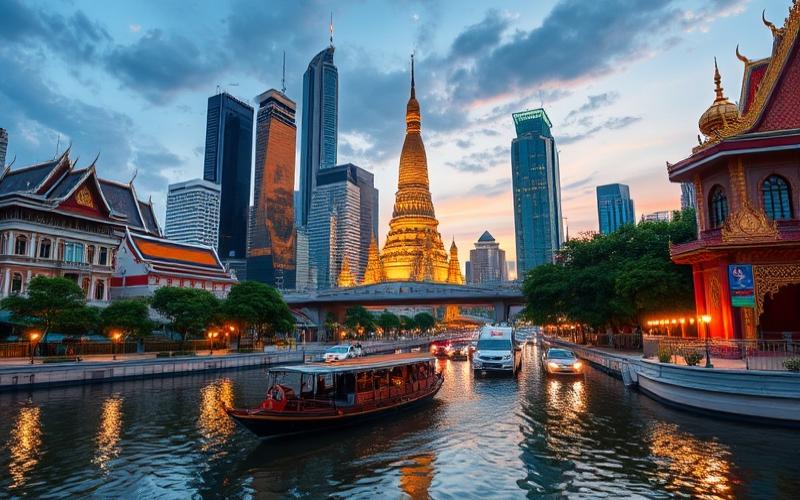

Thailand: An Economic Hub in Transformation As Thailand continues to attract massive investments and its economy undergoes rapid transformation, some [...]


Acquiring Agricultural Land in Thailand Acquiring agricultural land in Thailand may seem like an attractive opportunity for investors and agriculture [...]
The Irresistible Appeal of Thai Real Estate: Why Invest?
Thailand has established itself as a preferred destination for international real estate investors, and it’s no coincidence. The Land of Smiles offers a unique combination of assets that make it a particularly attractive market.
First, Thailand’s relative economic and political stability compared to some of its Southeast Asian neighbors makes it a safe haven for investors. The Thai government has implemented policies favorable to foreign investment, particularly in the real estate sector, which greatly facilitates procedures for non-residents.
The growth potential of the Thai real estate market is another key factor. Despite some maturity in the most sought-after areas like Bangkok or Phuket, many regions still offer interesting capital appreciation opportunities. Constantly improving infrastructure, particularly transportation and telecommunications, contributes to increasing property values throughout the country.
Thailand’s relatively low cost of living is also a significant advantage for investors. Not only does this allow for acquiring real estate at competitive prices compared to other international destinations, but it also makes property management and maintenance more affordable in the long term.
Finally, let’s not forget Thailand’s undeniable tourist appeal. With its paradise beaches, renowned cuisine, and rich cultural heritage, the country attracts millions of visitors each year. This tourist influx creates constant demand for short and medium-term rentals, thus offering interesting rental profitability prospects for investors.
Good to know:
Thailand offers a favorable environment for real estate investment thanks to its economic stability, growth potential, affordable cost of living, and tourist appeal. These combined factors make it a preferred destination for international investors looking to diversify their real estate portfolio.
The Thai Real Estate Market Unveiled: Price Trends and Opportunities
The Thai real estate market is characterized by its diversity and dynamism. Prices vary considerably depending on regions and property types, thus offering opportunities for all budgets and investor profiles.
In Bangkok, the bustling capital, real estate prices have experienced sustained growth in recent years, particularly in the luxury segment. In the most sought-after neighborhoods like Sukhumvit or Silom, high-end apartments can reach prices ranging from 200,000 to 500,000 baht per square meter (approximately $5,500 to $13,700). However, it’s still possible to find interesting opportunities in developing areas of the periphery, with more affordable prices around 80,000 to 150,000 baht per square meter ($2,200 to $4,100).
In beach destinations like Phuket or Koh Samui, the market is more oriented toward villas and luxury residences. In Phuket, for example, a luxury villa with sea views can trade between 20 and 100 million baht ($550,000 to $2.75 million), depending on its location and amenities. More affordable options also exist, with condominium apartments starting from 3 to 5 million baht ($82,000 to $137,000).
It’s important to note that the Thai real estate market has shown some resilience to global economic crises. Although the COVID-19 pandemic temporarily slowed the market, experts agree that recovery is underway, with interesting opportunities for savvy investors.
A concrete example well illustrates current market opportunities: in Bangkok, a 100 m² luxury apartment in a high-end condominium is offered at 29 million baht (approximately $795,000). This type of property offers not only interesting long-term capital appreciation potential but also attractive rental profitability prospects, particularly with an expatriate or high-end tourist clientele.
Good to know:
Real estate prices in Thailand vary considerably depending on regions and property types. Bangkok and beach destinations like Phuket offer opportunities in the luxury segment, while more affordable options exist in developing areas. The market’s resilience to economic crises makes it an attractive investment destination.
The Range of Possibilities: Housing Types and Price Examples
The Thai real estate market offers a wide variety of properties to meet different investor needs and budgets. Here’s an overview of the main available housing types, accompanied by price examples to give you a concrete idea of investment opportunities.
1. Condominiums
Condominiums are particularly popular among foreign investors, as they represent one of the few options for full ownership purchase for non-Thais. They are mainly found in large cities and tourist areas.
Price example: In Bangkok, a one-bedroom condominium in a central neighborhood like Sukhumvit can cost between 4 and 8 million baht ($110,000 to $220,000), depending on the residence quality and offered amenities.
2. Villas
Villas are highly sought after in beach destinations and often offer excellent rental profitability potential. They can be purchased in full ownership by foreigners if they are part of an approved development project.
Price example: In Phuket, a 3-bedroom luxury villa with private pool can trade between 15 and 30 million baht ($412,000 to $825,000), depending on its location and finishes.
3. Traditional Thai Houses
For those seeking a more authentic experience, traditional Thai houses offer unique charm. They are generally cheaper than modern villas but may require more maintenance.
Price example: In a province like Chiang Mai, a renovated traditional house can cost between 3 and 10 million baht ($82,000 to $275,000), depending on its size and location.
4. Hotel Apartments
This property type combines the advantages of classic real estate investment with those of a hotel. They are particularly popular in tourist areas.
Price example: In Pattaya, a one-bedroom hotel apartment in a luxury complex can cost between 3 and 6 million baht ($82,000 to $165,000).
5. Land
Although foreigners cannot directly own land in Thailand, it’s possible to invest in land through specific legal structures. This option is interesting for those considering long-term development projects.
Price example: Land prices vary considerably by region. In Koh Samui, for example, an 800 m² buildable plot can cost between 4 and 10 million baht ($110,000 to $275,000), depending on its proximity to the beach and surrounding infrastructure.
It’s important to note that these prices are given for indicative purposes and may vary depending on many factors such as exact location, construction quality, offered amenities, and market conditions at the time of purchase.
Good to know:
Thailand offers a great diversity of real estate properties, from urban condominiums to luxury villas and traditional houses. Prices vary considerably depending on property type and location, offering opportunities for all budgets. It’s crucial to thoroughly study the market and understand the specifics of each property type before investing.
Investment Gems: Attractive Areas in Thailand
Thailand abounds with attractive destinations for real estate investment, each offering its own unique advantages and characteristics. Here’s an overview of the most promising areas for investors:
1. Bangkok: The Bustling Metropolis
The Thai capital remains the country’s economic heart and attracts many investors. Central neighborhoods like Sukhumvit, Silom, and Sathorn are particularly sought after for their luxury condominiums and proximity to business centers. Developing areas like Thonglor, Ekkamai, and Ari also offer excellent medium-term capital appreciation potential.
2. Phuket: The Paradise Island
Known for its dream beaches and luxurious lifestyle, Phuket attracts investors seeking high-end properties. The most sought-after areas include Surin, Kamala, and Bang Tao for their luxury villas, while Patong and Kata offer interesting opportunities in the tourist condominium segment.
3. Chiang Mai: The Charm of the North
The “Rose of the North” captivates with its pleasant living environment and attractive cost of living. Nimman and downtown neighborhoods are particularly sought after for investments in modern condominiums, while peripheral areas offer opportunities for traditional houses at more affordable prices.
4. Pattaya: The Booming Beach Resort
Located just two hours from Bangkok, Pattaya is experiencing rapid development of its real estate market. Jomtien and Pratumnak areas are particularly attractive for investors seeking sea-view condominiums at competitive prices.
5. Koh Samui: The Exclusive Tropical Island
This island in the Gulf of Thailand attracts investors seeking luxury properties in a paradise setting. Chaweng, Lamai, and Bophut beaches are particularly sought after for their high-end villas and exclusive residential complexes.
6. Hua Hin: The Royal Beach Resort
Appreciated for its more tranquil atmosphere and pleasant climate, Hua Hin attracts a more mature and affluent clientele. Investments in seaside condominiums or houses in secure residential complexes are particularly popular there.
It’s important to note that each of these areas has its own market dynamics and specificities. For example, in Bangkok, demand for well-located apartments remains strong, particularly due to the constant influx of expatriates and increasing urbanization. In Phuket, the luxury villa market has shown remarkable resilience, even during the pandemic, thanks to a loyal international clientele.
Savvy investors should also consider ongoing or planned infrastructure projects in these different areas. For example, the continuous expansion of Bangkok’s metro network or Phuket airport improvement projects can significantly impact property values in the medium and long term.
Good to know:
Thailand offers a diversity of attractive areas for real estate investment, each with its own characteristics. From the urban frenzy of Bangkok to the paradise beaches of Phuket, and the cultural charm of Chiang Mai, investors have plenty of choices. It’s crucial to carefully study the specifics of each local market and future development projects before making an investment decision.
Thailand vs. Its Competitors: Comparative Analysis
To properly understand Thailand’s appeal as a real estate investment destination, it’s essential to compare it with other similar destinations in Southeast Asia. This comparative analysis will allow us to highlight Thailand’s competitive advantages, but also its potential challenges.
Thailand vs. Indonesia (Bali)
Bali, Indonesia, is often considered a direct competitor to Thailand, particularly for investors seeking luxury properties in a tropical setting.
Thailand’s Advantages: – More developed and modern infrastructure, particularly in terms of healthcare and transportation. – Generally more stable and transparent legal framework for foreign investors. – Diversity of investment destinations, from metropolis to paradise islands.
Bali’s Advantages: – Potentially lower real estate prices in some areas. – Unique cultural charm and strong tourist appeal. – Possibility for foreigners to obtain very long-term leases (up to 80 years) on land.
Thailand vs. Vietnam
Vietnam has emerged in recent years as an attractive real estate investment destination in Southeast Asia.
Thailand’s Advantages: – More mature and regulated real estate market. – More developed tourist infrastructure, attracting diverse international clientele. – Quality of life generally perceived as superior, particularly for expatriates.
Vietnam’s Advantages: – Faster economic growth, potentially offering higher returns. – Lower entry costs into the real estate market often. – Market still in development phase, offering more long-term capital appreciation opportunities.
Thailand vs. Malaysia
Malaysia, with destinations like Kuala Lumpur or Penang, is also a serious competitor in the real estate investment market in Southeast Asia.
Thailand’s Advantages: – More developed tourism industry, offering better prospects for seasonal rentals. – Generally lower cost of living, making property maintenance less expensive. – Unique culture and lifestyle, highly appreciated by Western investors.
Malaysia’s Advantages: – More favorable regulation for foreign ownership, particularly for land purchase. – Perceived political stability as superior. – Modern infrastructure, particularly in large cities.
It’s important to note that despite competition, Thailand maintains a strong position in the Southeast Asian real estate investment market. Its unique combination of attractive factors – relative stability, developed infrastructure, strong tourist appeal, and investment option diversity – continues to attract investors from around the world.
A major asset of Thailand lies in its ability to offer a “turnkey” experience to foreign investors. The country has a well-developed ecosystem of services for expatriates and investors, including international real estate agencies, specialized law firms, and professional rental management services. This ease of access and investment management is a significant competitive advantage compared to some competing destinations.
Good to know:
Although Thailand faces increasing competition from other Southeast Asian destinations, it maintains significant competitive advantages. Its unique combination of developed infrastructure, tourist appeal, investment option diversity, and services for foreign investors makes it a preferred destination for real estate investment. However, each investor must carefully evaluate their objectives and preferences before choosing between Thailand and its regional competitors.
Acquiring real estate in Thailand by a foreigner is a subject that raises many questions. Although Thai legislation imposes certain restrictions, there are several options allowing foreign investors to realize their real estate projects in the Land of Smiles.
Condominiums: The Royal Road for Foreigners
Thai law authorizes foreigners to purchase apartments in full ownership in condominiums, provided that the total number of units owned by foreigners does not exceed 49% of the building’s total area. This 49% rule is crucial and must be verified before any purchase.
Purchase Procedure: 1. Choose a condominium respecting the 49% rule. 2. Sign a reservation contract and pay a deposit. 3. Conduct thorough due diligence on the property and developer. 4. Sign the definitive sales contract. 5. Transfer funds from abroad and obtain an exchange certificate. 6. Register the property transfer with the local land office.
Options for House or Land Purchase
Unlike condominiums, foreigners cannot directly own land or houses in Thailand. However, several alternatives exist:
1. Long-term lease: A foreigner can rent land or a house for a maximum duration of 30 years, renewable twice, for a total of 90 years.
2. Creation of a Thai company: It’s possible to create a Thai company where the foreigner holds up to 49% of shares, with the remainder held by Thai partners. This company can then purchase land or houses.
3. Usufruct: The foreigner can acquire a usufruct right on a property, allowing them to fully enjoy it for a determined duration, generally up to 30 years.
4. Marriage with a Thai: The Thai spouse can purchase property, but the foreigner must renounce in writing any rights to the property.
Points of Vigilance for Foreign Investors
1. Due diligence: It’s crucial to carefully verify all legal and financial aspects before any purchase. This includes checking the property title, building permits, and the developer’s financial situation in the case of off-plan purchases.
2. Legal advice: Using a lawyer specialized in Thai real estate law is strongly recommended to navigate legal complexities and avoid potential pitfalls.
3. Financing: Thai banks are generally reluctant to grant real estate loans to foreigners. It’s therefore important to plan adequate financing, often from your home country.
4. Taxation: Understanding the tax implications of purchasing and holding real estate in Thailand is essential. This includes transfer taxes, annual property taxes, and tax implications in your home country.
5. Rental management: If you plan to rent your property, it’s important to familiarize yourself with local rental regulations and consider employing a professional rental management company.
It’s important to note that Thai legislation concerning foreign ownership may evolve. For example, discussions are underway to potentially relax certain restrictions to attract more foreign investment. It’s therefore crucial to stay informed of the latest legal developments before committing to real estate investment in Thailand.
Good to know:
Although Thai legislation imposes certain restrictions on foreign buyers, there are several viable options for investing in real estate in Thailand. Condominium purchase remains the most direct route, while alternatives like long-term leases or company creation offer solutions for house or land acquisition. Thorough due diligence and professional legal advice are essential to successfully navigate the Thai real estate landscape.
The Golden Promise: Rental Profitability in Thailand
One of the most attractive aspects of real estate investment in Thailand is the rental profitability potential. With its flourishing tourism industry and constantly growing expatriate community, Thailand offers many opportunities to generate interesting rental income. Let’s take a closer look at what investors can expect in terms of rental yields in different regions of the country.
Bangkok: The Beating Heart of Urban Profitability
The Thai capital, with its population of over 8 million inhabitants and status as a regional economic hub, offers particularly interesting long-term rental prospects.
Profitability example: – A one-bedroom apartment in the central Sukhumvit neighborhood, purchased for approximately 5 million baht ($137,000), can rent for between 25,000 and 35,000 baht per month ($685 to $960). – This represents a gross annual rental yield of 6 to 8%.
The most sought-after areas for rental in Bangkok include Sukhumvit, Silom, and Sathorn for expatriates and professionals, while neighborhoods like Ratchathewi or Phra Khanong attract a younger clientele and international students.
Phuket: The Island of Paradise Yields
Phuket, with its status as a premier tourist destination, offers excellent potential for seasonal rentals and vacation rentals.
Profitability example: – A 3-bedroom luxury villa in Surin, purchased for 20 million baht ($550,000), can generate rental income of approximately 2 million baht per year ($55,000) in seasonal rentals. – This represents a gross annual rental yield of about 10%.
It’s important to note that profitability in Phuket can be more volatile due to the seasonal nature of tourism. However, the growing trend of long-term rentals for digital nomads offers new opportunities to stabilize rental income throughout the year.
Chiang Mai: The Charm of the North at Attractive Prices
Chiang Mai, with its lower cost of living and appeal to expatriates and retirees, offers interesting opportunities for long-term rental.
Profitability example: – A modern one-bedroom condominium in the Nimman neighborhood, purchased for 3 million baht ($82,000), can rent for between 12,000 and 15,000 baht per month ($330 to $410). – This represents a gross annual rental yield of 4.8 to 6%.
Although yields in Chiang Mai may seem slightly lower than those in Bangkok or Phuket, the lower entry cost and reduced management fees can make these investments particularly attractive.
Factors Influencing Rental Profitability
1. Location: As with any real estate investment, location is crucial. Properties near beaches, city centers, or tourist interest areas generally generate higher yields.
2. Property type: Modern, well-equipped condominiums are particularly in demand for long-term rental, while luxury villas can command high rates for vacation rentals.
3. Rental management: Professional management can maximize occupancy rates and income, particularly for vacation rentals. Management fees generally vary between 15 and 25% of rental income.
4. Seasonality: In tourist destinations like Phuket or Koh Samui, income can vary considerably between high and low season. A mixed rental strategy (short-term in high season, long-term in low season) can help optimize income.
5. Regulation: It’s crucial to comply with local rental regulations. For example, rentals of less than 30 days are technically illegal in Thailand without appropriate hotel license.
It’s important to note that these profitability figures are gross estimates. Investors must consider additional costs such as taxes, maintenance, insurance, and possible condominium fees to calculate the real net return on their investment.
Good to know:
Thailand offers attractive rental profitability opportunities, with gross yields potentially reaching 6 to 10% depending on regions and property types. Bangkok stands out for long-term rentals, while Phuket excels in high-end seasonal rentals. Chiang Mai offers a good compromise between low entry cost and stable yields. Professional management and thorough understanding of the local market are essential to maximize the profitability of your real estate investment in Thailand.
Conclusion: Thailand, a Real Estate Investment Eldorado?
At the end of this in-depth exploration of the Thai real estate market, it clearly appears that Thailand offers considerable potential for international real estate investors. The country’s unique combination of assets – relative economic stability, developed infrastructure, undeniable tourist appeal, and affordable cost of living – makes it a preferred destination for those looking to diversify their real estate portfolio or acquire a dream residence in the tropics.
The strengths of real estate investment in Thailand include:
– A diversity of markets, from the urban frenzy of Bangkok to the paradise beaches of Phuket, and the cultural charm of Chiang Mai. – Potentially attractive rental yields, particularly in tourist areas and urban centers. – A legal framework that, although complex for foreigners, nevertheless offers viable options for investment, particularly in condominiums. – A relatively mature and transparent real estate market compared to some of its Southeast Asian neighbors.
However, like any international investment, it also has its challenges:
– Legal restrictions on foreign ownership require thorough understanding and sometimes complex investment structures. – Potential market volatility, particularly in the
Disclaimer: The information provided on this website is for informational purposes only and does not constitute financial, legal, or professional advice. We encourage you to consult qualified experts before making any investment, real estate, or expatriation decisions. Although we strive to maintain up-to-date and accurate information, we do not guarantee the completeness, accuracy, or timeliness of the proposed content. As investment and expatriation involve risks, we disclaim any liability for potential losses or damages arising from the use of this site. Your use of this site confirms your acceptance of these terms and your understanding of the associated risks.



